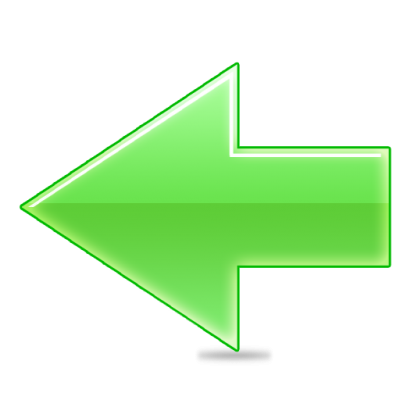Alcoholism, Substance Abuse and Dependency
Presented by
Lance J. Parks, LCSW
15 CE Credits/Contact Hours
Price: $75
Instructions
How to get your certificate of completion:
- On the left column, click on 'Download the Course.' [
 ] ]
- It would be helpful to 'print the test' to fill out as you read the course.
- After reading the course, click on the link to 'Take Test'
- If you have not already registered and logged in you will be prompted to do so.
- After passing the test, fill out the Course Evaluation, choose the method of payment then click submit (We accept PayPal, most major credit cards and echecks). You will then be taken to the payment page.
- After submitting payment, you will be able to print your certificate of completion on your member account page.
Test results of courses passed, receipts, and certificates of CE credit, are kept on your member account page for you to retrieve as needed.
Board and Agency Approvals
ASWB/ACE: SpeedyCeus.com, provider #1613, is approved as an ACE provider to offer social work continuing education by the Association of Social Work Boards (ASWB) Approved Continuing Education (ACE) program. Regulatory boards are the final authority on courses accepted for continuing education credit. ACE provider approval period: 12/15/24 to 12/15/27. Social Workers completing this course receive 15 general continuing education credits.
CALIFORNIA: This program meets the requirements for the California Board of Behavioral Sciences for 15 hours of CE Credit
TEXAS: This course meets the criteria for acceptable continuing education as defined by the Texas State Boards of Professional Counselors, Marriage and Family Therapists and Social Workers for 15 hours of CE Credit.
This program is approved for 15 continuing education credits/contact hours by:
It is the responsibility of the participant to check with their board regarding specific CE requirements.
CE Course Description
TThis course equips mental health professionals and drug counselors with essential knowledge on substance use disorders. Blending research with case studies, it covers neurobiology, DSM-5-TR/ICD-11 criteria, screening tools, and evidence-based treatments. Learners gain practical tools for co-occurring disorders, harm reduction, relapse prevention, and integrated care.
This course is an online, non-interactive, reading based, self-paced, and asynchronous course.
If you have questions about the course, require accessibility accommodations or need assistance, please email info@speedyceus.com or call (909) 628-4216.
CE Learning Objectives
At the end of the course, the participant will be able to:
- Define the key concepts of alcoholism, substance abuse, and dependency, and distinguish between DSM-5-TR and ICD-11 diagnostic criteria for substance use disorders.
- Apply validated screening and assessment tools (e.g., AUDIT, DAST, ASSIST, ASI, PHQ-9, GAD-7, PCL-5) to clinical scenarios in order to guide accurate diagnosis and treatment planning.
- Evaluate the short-term and long-term health and psychosocial consequences of alcohol and other substance use, including overdose risk, infectious disease transmission, and legal or social challenges.
- Demonstrate an understanding of the ethical, legal, and professional issues in substance use treatment (including confidentiality, cultural competence, and interprofessional collaboration), and incorporate these principles into clinical practice.
- Explain the neurobiological mechanisms of addiction and describe how substances such as alcohol, opioids, stimulants, cannabis, and hallucinogens alter brain pathways involved in reward, motivation, and self-regulation.
- Identify evidence-based treatment interventions (e.g., Cognitive-Behavioral Therapy, Motivational Interviewing, Contingency Management, and pharmacological supports) and evaluate their role in promoting recovery across diverse client populations.
- Apply counseling strategies and therapeutic techniques in individual, group, and family contexts, while integrating cultural competency, ethical standards, and client-centered treatment planning.
- Assess the impact of prevention strategies, public health policies, and community-based interventions on substance use trends, treatment accessibility, and harm reduction outcomes.
- Recognize the influence of social determinants of health (such as poverty, housing, discrimination, and trauma) on substance use risk and recovery, and identify ways to advocate for client access to resources and systemic supports.
CE Course Outline
Target Audiences: A Social Workers, Marriage and Family Therapists, Professional Counselors and Nurses Content level: A Intermediate
- Chapter 1: Introduction
- Chapter 2: Historical Perspective and Theoretical Frameworks
- Chapter 3: Neurobiology of Addiction
- Chapter 4: Alcoholism
- Chapter 5: Substance Abuse
- Chapter 6: Evidence-Based Treatment Approaches
- Chapter 7: Counseling Strategies and Therapeutic Techniques
- Chapter 8: Prevention, Policy, and Community Interventions
Course Development
Course topics are chosen based on various board requirements and professionals needs. Licensed professionals oversee, compile and develop course materials, posttest, and other course materials, determine the level of difficulty, and ensure course content is appropriate. The course developer bio is available here.
Course Updated September 2025
|
|


